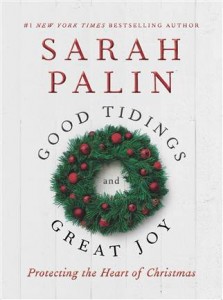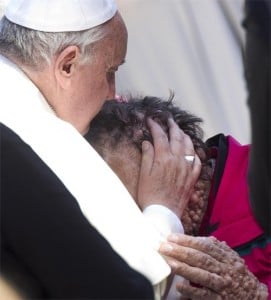There has been a recent discussion on what we mean by the term “catholicity” especially when compared to the assertions of other traditions. Orthodoxy & Heterodoxy reposts an article originally found at Lux Christi:
(T)his inability to find Roman scholastic particulars or precise Latin medieval explanations of dogma in the Fathers amounted to nothing more than so many red herrings, for Truth in the early Church was union with Christ. And Christ was not, of course, only Truth, but also the Way and the Life. For the Fathers, what is handed over to them, what was tradition was Christ—the Way, the Truth, and the Life. This was found only within the Church, in the Eucharistic community under and guarded by the bishop, and not in sola scriptura, or justification by faith alone. The Reformers sought to make catholicity something it was not by focusing on items which the Roman church had added, expanded on, or minutely defined in such a way, and within the context of scholastic debate, that to the Reformers it bore little resemblance to what they were reading in the Fathers, let alone the Bible. The humanist training of most of the Reformers emboldened them to think that merely by critical tools they could come to understand the Scriptures, and indeed that a plow boy in the field was as equipped as any Parisian Master or bishop. What had occurred, however, was that they had thrown off one set of assumptions for another set, ones that just about every Protestant refuses to admit they have adopted, to the detriment of the Fathers.
For the Fathers, we joined with the bishop in the Eucharist because there was Christ, and, to use the words of St. Ignatius, that we might have a part in God. St. Hippolytus and Clement of Alexandria said we did this so that we might be made God (Theopoein). St. Irenaeus of Lyons said that God became what we are in order that we might become what He is. St. Irenaeus is also quite adamant that this union was only found within the Catholic Church: and we know that by being united with the bishops who link themselves with the Apostles, and not by our correct understanding of the Bible (the correct understanding of the Bible was dependent on union with the bishops).
In my own experience I found this to be true. It seemed that a few of the doctrines of the early church Fathers were adopted by Reformers but others were jettisoned. My sense is that they did this in part due to the fear of creating any confusion people might have with the Roman Catholic traditions that they were fighting against.
There is no such thing as Sola Scriptura. That is simply a false term. Scripture is always interpreted through a tradition. The Reformers were creating a few traditions of their own through which they read and understood the bible. I find it dishonest not to admit what is really going on to make exceptions to the rules you set up. Delwin Brown makes a set of arguments showing that traditions are sources of creativity and formative of life. Theology is always “traditioned.” For example, to say the doctrine of the Trinity reflects Sola Scriptura, “justification by faith alone,” and the satisfaction understanding of the Atonement while doing away with bishops, Liturgy, and totally reconstructing the sacraments ignores central aspects which the church Fathers held dear.
The question is which stream is correct? Which more adequately articulates right teaching and right worship? If our present thinking is shaped by the traditions we inherit what of those traditions are we going to settle for and can we be honest even if the tradition itself is not?











